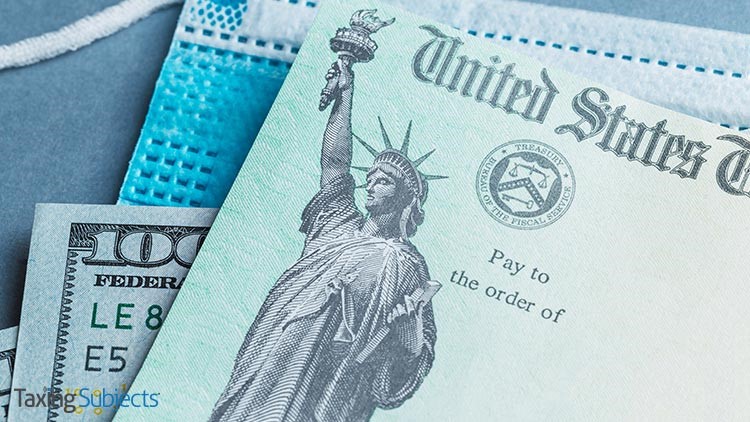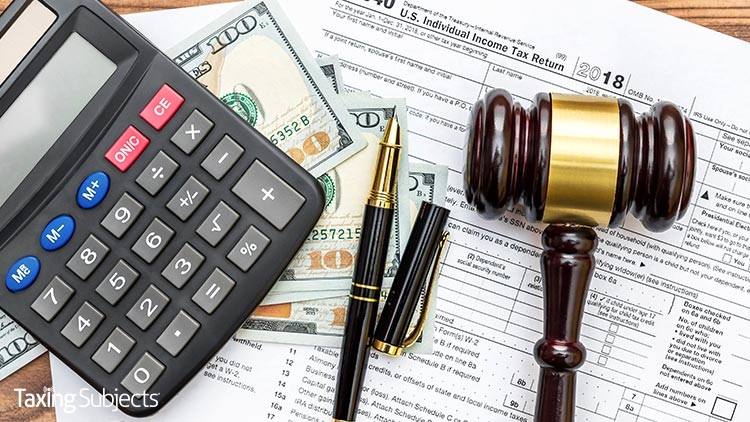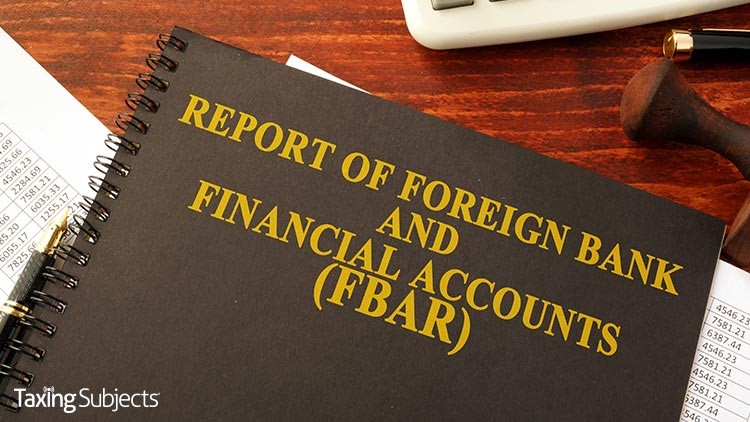by Ameritax | Apr 17, 2021 | Tax Tips and News
The Internal Revenue Service continues to send out Economic Impact Payments (EIPs), aimed at helping Americans though these tough economic times. But how can the agency fulfill its mission if the citizens who need the help most—the homeless and the rural poor—don’t have permanent addresses?
The IRS is relying on a team approach to tackle the problem.
People in these under-served groups may be eligible for an EIP—but they can’t be issued a payment when the IRS doesn’t have their information. So, the agency is asking “community groups, employers, and others to share information about Economic Impact Payments and help more eligible people file a tax return so they can receive everything they’re entitled to.”
IRS Commissioner Chuck Retting says his agency is working “directly with groups inside and outside the tax community to get information directly to people experiencing homelessness and other groups to help them receive Economic Impact Payments.”
People can get Economic Impact Payments even if they have little or no income and even if they don’t usually file a tax return. They do, however, need a Social Security Number and cannot be claimed as a dependent by another taxpayer.
IRS wants to fill in the blanks
The IRS says the only way it can get the information it needs to send out an EIP is from a basic 2020 federal tax return. When a return is processed, the IRS can then send stimulus payments to the address of choice selected by the filer.
“Someone experiencing homelessness may list the address of a friend, relative or trusted service provider, such as a shelter, drop-in day center or transitional housing program, on the return filed with the IRS,” the agency explains. “If they are unable to choose direct deposit, a check or debit card for the tax refund and the third Economic Impact Payment can then be mailed to this address.”
In addition to EIP3, the IRS says those without a permanent address can qualify for other tax credits—like the Earned Income Tax Credit—and even EIP1 and EIP2 when filing a 2020 return.
To get their share of those two earlier direct payments, the filer needs to claim the Recovery Rebate Credit. For those who are unfamiliar with the RRC, the IRS has a webpage dedicated to it: Claiming the 2020 Recovery Rebate Credit if you aren’t required to file a tax return.
As for the EITC, the IRS says their EITC Assistant can help homeless workers determine whether they qualify and estimate its value.
Getting a bank account isn’t required
While a bank account isn’t required to receive an Economic Impact Payment, having an account does enable a filer to get their EIP direct deposited.
The Federal Deposit Insurance Corporation (FDIC) website has details on opening an account online. Other resources with lists of banks and credit unions that can open an account online include:
The IRS also notes that veterans can use the Veterans Benefits Banking Program (VBBP) “for access to financial services at participating banks.”
Filers with a prepaid debit card may also be able to have their refund sent to their card account. Cardholders need to check with the institution that issued the card to find out if the card can be used and to get the routing and account numbers, which could be different from the card number.
Other resources for employers
The IRS issued this latest press release to “help spread the word” to those who could use this financial boost the most. To make it easier for employers to provide employees with information about the Earned Income Tax Credit, they created an outreach material packet that is available on their site: EITC.IRS.gov/Partner-Toolkit/Employers/Employers.
Sources: Those experiencing homelessness can get Economic Impact Payments and other tax benefits; Claiming the Recovery Rebate Credit if you aren’t required to file a tax return
– Story provided by TaxingSubjects.com
by Ameritax | Apr 15, 2021 | Tax Tips and News
The Internal Revenue Service is once again warning taxpayers who are involved in abusive micro-captive insurance schemes that they need to get out of those arrangements—and quickly.
A new U.S. Tax Court victory has added steam to the latest round of IRS examinations of these arrangements, finding they “are not eligible for the tax benefits claimed.”
IRS wins its day in court
In March, the IRS won its case before the U.S. Tax Court in Caylor Land & Dev. v. Commissioner, T.C. Memo. 2021-30. The IRS says the case confirmed its other findings that insurance under these micro-captive arrangements doesn’t qualify as insurance for federal tax purposes. This latest case also bolstered how the IRS determines penalties related to accuracy of the scheme’s claims while rejecting the taxpayer’s claim to have relied on tax advice.
IRS Commissioner Chuck Rettig says the new court victory is just more evidence that micro-captive insurance schemes won’t survive the harsh examination of the law. As a result, the IRS advises taxpayers who have been involved in micro-captive insurance arrangements to get out of their arrangement and not report deductions associated with the scheme.
IRS widens its investigations
The IRS isn’t just beefing up its court strategy on this issue; it’s also increasing its investigative forces.
In 2020, the Internal Revenue Service deployed 12 new micro-captive audit teams to ramp up scrutiny of ongoing transactions by micro-captive insurance arrangements. An IRS press release lays out the agency’s game plan for micro-captive insurance schemes.
“The IRS will disallow tax benefits from transactions that are determined to be abusive and may also require domestic captives to include premium payments in income and assert a withholding liability on foreign captives,” the release states. “The IRS will continue to assert penalties, as appropriate, including the strict liability penalty that applies to transactions that lack economic substance.”
Taxpayers on notice for bigger penalties
Back in 2016, the IRS raised the red flag that micro-captive insurance transactions are on the agency’s radar for tax avoidance or tax evasion. Notice 2016-66 lays out a checklist of sorts to alert tax professionals what aspects of these tax structures could lead auditors to determine them to be abusive. These shady tax moves are called “transactions of interest.”
The IRS says it sent letters in 2020 to taxpayers who took part in one of those transactions listed in the Notice. The letters let the taxpayers know that IRS audit activity was about to expand dramatically and gave them the chance to tell the agency if they had gotten out of the arrangement before the audit actually began.
The early responses, the IRS proudly notes, indicate that a lot of the forewarned taxpayers have indeed exited their arrangements.
Sources: IRS urges participants of abusive micro-captive insurance arrangements to exit from arrangements; 12 new audit teams established; Notice 2016–66 Transaction of Interest — Section 831(b) Micro-Captive Transactions
– Story provided by TaxingSubjects.com
by Ameritax | Apr 14, 2021 | Tax Tips and News
While the deadline for filing federal income taxes has been pushed back to May 15 because of the COVID-19 pandemic, those who file an annual Report of Foreign Bank and Financial Accounts (FBAR) still face their same April 15, 2021 due date.
FBAR filers who miss the April 15 deadline, however, will get an automatic extension that gives them until October 15 to file. There’s no need to request an extension.
Who has to file an FBAR?
American citizens are required to file an FBAR by the Bank Secrecy Act if they have a financial interest or signature authority in any financial account in a foreign country and the total of their foreign accounts exceeds $10,000 any time during the calendar year.
The IRS says the value threshold means all U.S. residents with foreign financial interests should check if the filing requirement applies to them. This includes U.S. citizens, resident aliens and domestic legal entities, even those with relatively small holdings.
The IRS defines “foreign country” as any area outside the borders of the U.S., Indian lands as defined in the Indian Gaming Regulatory Act, and these U.S. possessions:
- Northern Mariana Islands,
- District of Columbia,
- American Samoa,
- Guam,
- Puerto Rico,
- United States Virgin Islands, and
- Trust Territories of the Pacific Islands.
Potential U.S. FBAR filers include individual citizens or residents of the United States, or a domestic legal entity, such as a partnership, corporation, limited liability company, estate or a trust.
The FBAR must be filled electronically, using the BSA E-Filing System website. If a taxpayer is unable to e-file an FBAR they should call the Financial Crimes Enforcement Network (FinCEN) at 800-949-2732, or 703-905-3975 if they’re calling from outside the U.S.
Failure to file an FBAR when otherwise required could result in civil and criminal penalties that lead to a fine or even prison time. The IRS says, however, that it will not penalize taxpayers who reported a foreign account properly but filed the FBAR late—provided the agency finds there was reasonable cause for the late submission.
For more information, the IRS suggests the following webpages:
Taxpayers who live outside the U.S. should consult Helpful Tips for Effectively Receiving a Tax Refund for Taxpayers Living Abroad on IRS.gov to help them avoid delays with tax refunds.
Sources: IRS reminds foreign bank and financial account holders the FBAR deadline remains April 15; How to report foreign bank and financial accounts;
– Story provided by TaxingSubjects.com
by Ameritax | Apr 13, 2021 | Tax Tips and News
The American Rescue Plan Act brought a third round of Economic Impact Payment and plenty of changes to tax credits, including how the agency approaches the Premium Tax Credit (PTC).
The requirement that taxpayers report and repay any excess advance payment of the PTC on their income tax return has been suspended—but only for tax year 2020.
What is the Advance Premium Tax Credit?
The Premium Tax Credit helps Americans pay for health insurance that’s purchased through the Health Insurance Marketplace.
When someone applies for coverage, the Marketplace estimates the amount of the Premium Tax Credit the taxpayer can claim for the year of coverage. The estimate is based on the size of the taxpayer’s family and their projected household income.
Taxpayers can choose how much—if any—of the estimated credit will be paid directly to the insurance company for their premiums. These advance payments of the Premium Tax Credit (APTC) can go to the insurance company, or to the taxpayer.
If the APTC goes to the taxpayer, they are responsible for their monthly insurance premiums and can claim all the PTC allowed when they file their tax return.
Previously, taxpayers with excess APTC would have to file Form 8962, Premium Tax Credit, or enter the amount on Line 2 of Form 1040 or Form 1040-SR, Schedule 2.
The American Rescue Plan Act of 2021 puts that requirement on hold for tax year 2020 returns.
The suspension for reporting does not apply, however, to those taxpayers who have net PTC.
Net PTC means the taxpayer’s PTC for 2020 is more than the APTC paid for their health insurance and family members’ coverage for 2020. Net PTC can also happen when the taxpayer was allowed a Premium Tax Credit for 2020, but didn’t get an advance payment.
These taxpayers should report their net PTC using Form 8962 when they file their 2020 tax return. The IRS says some taxpayers may get a notice requesting more information. If they do, taxpayers should respond to that notice immediately.
What if a taxpayer has already filed?
Taxpayers who have excess APTC for 2020 and have already filed don’t have to contact the IRS or file an amended return. The IRS says it “will reduce the excess APTC repayment amount to zero with no further action needed by the taxpayer.”
Those who have already repaid excess advance Premium Tax Credit on their 2020 returns will be reimbursed by the IRS.
Sources: IRS suspends requirement to repay excess advance payments of the 2020 Premium Tax Credit; Fact Sheet 2021-08 – More details about changes for taxpayers who received advance payments of the 2020 Premium Tax Credit;
– Story provided by TaxingSubjects.com
by Ameritax | Apr 10, 2021 | Tax Tips and News
The IRS has unveiled guidance that temporarily throws open the gates to recouping 100 percent of the expense for certain food and beverage purchases. The new rules for this business deduction went into effect on Jan.1 of this year.
The guidance is spelled out in Notice 2021-25, which addresses changes set out in the Taxpayer Certainty and Disaster Relief Act of 2020. The new law created an exception to the usual 50 percent amount that businesses can claim as a food and beverage business expense.
The notice lays out the conditions that qualify for the temporary deduction. Purchases are eligible between Jan. 1, 2021, and Dec. 31, 2022, and the owner of the business—or an employee—has to be present when the food or beverages are served.
The Notice includes other restrictions as well:
“For this purpose, the term ‘restaurant’ means a business that prepares and sells food or beverages to retail customers for immediate consumption, regardless of whether the food or beverages are consumed on the business’s premises.
“However, a restaurant does not include a business that primarily sells pre-packaged food or beverages not for immediate consumption, such as a grocery store; specialty food store; beer, wine, or liquor store; drug store; convenience store; newsstand; or a vending machine or kiosk.”
And just to make sure those business lunches don’t get too fancy, the IRS states in the release that “the expense can’t be lavish or extravagant under the circumstances.”
The notice also states that “any eating facility located on the business premises of the employer and used in furnishing meals excluded from an employee’s gross income” or an employer-operated eating facility that’s treated as a fringe benefit doesn’t qualify for the higher deduction rate—even if it’s run by a third-party contractor.
Any claims for the deduction, the notice stipulates, have to include documentation showing the cost of the food or beverages separate from the costs of any entertainment.
Check out the IRS website, IRS.gov, for more information on businesses seeking coronavirus-related tax relief.
Sources: Treasury, IRS provide guidance on tax relief for deductions for food or beverages from restaurants; Temporary 100-Percent Deduction for Business Meal Expenses.
– Story provided by TaxingSubjects.com






 Ameritax
Ameritax